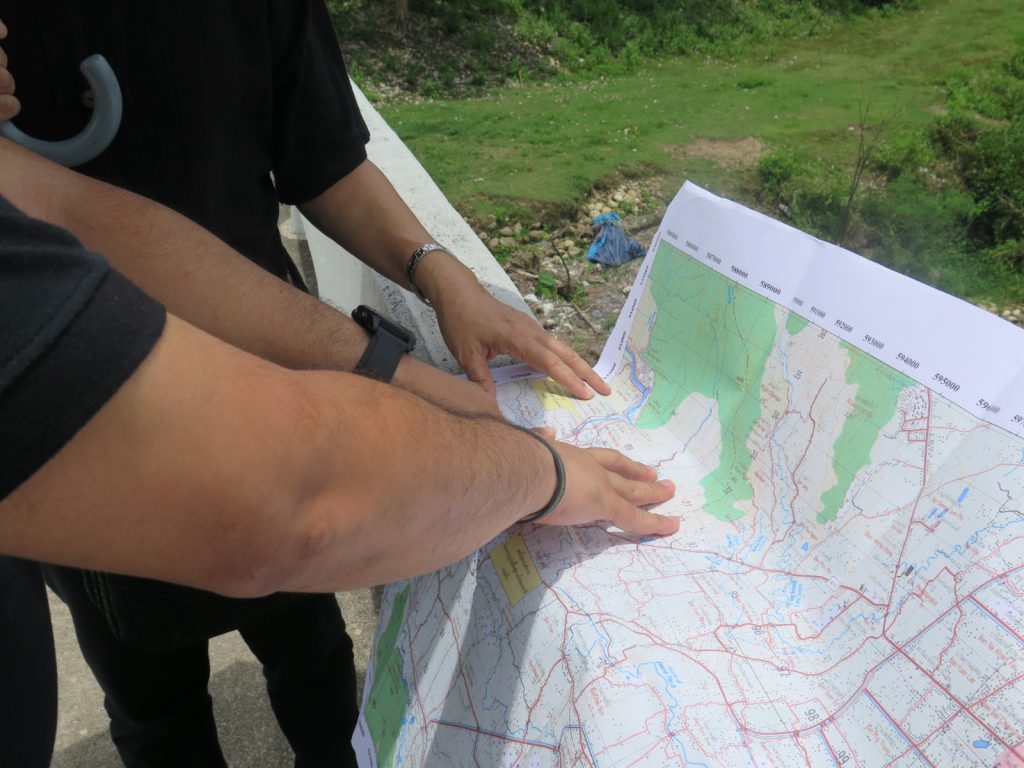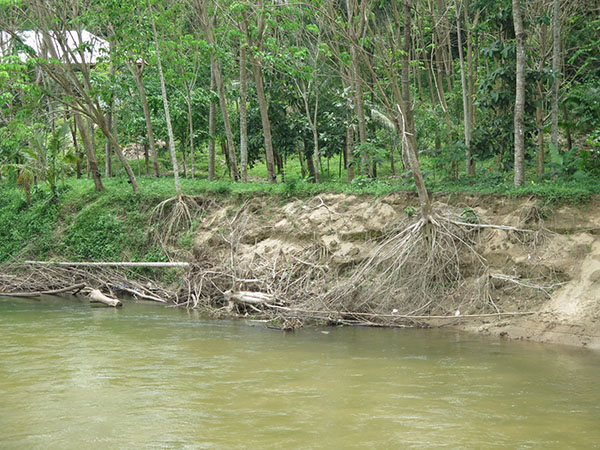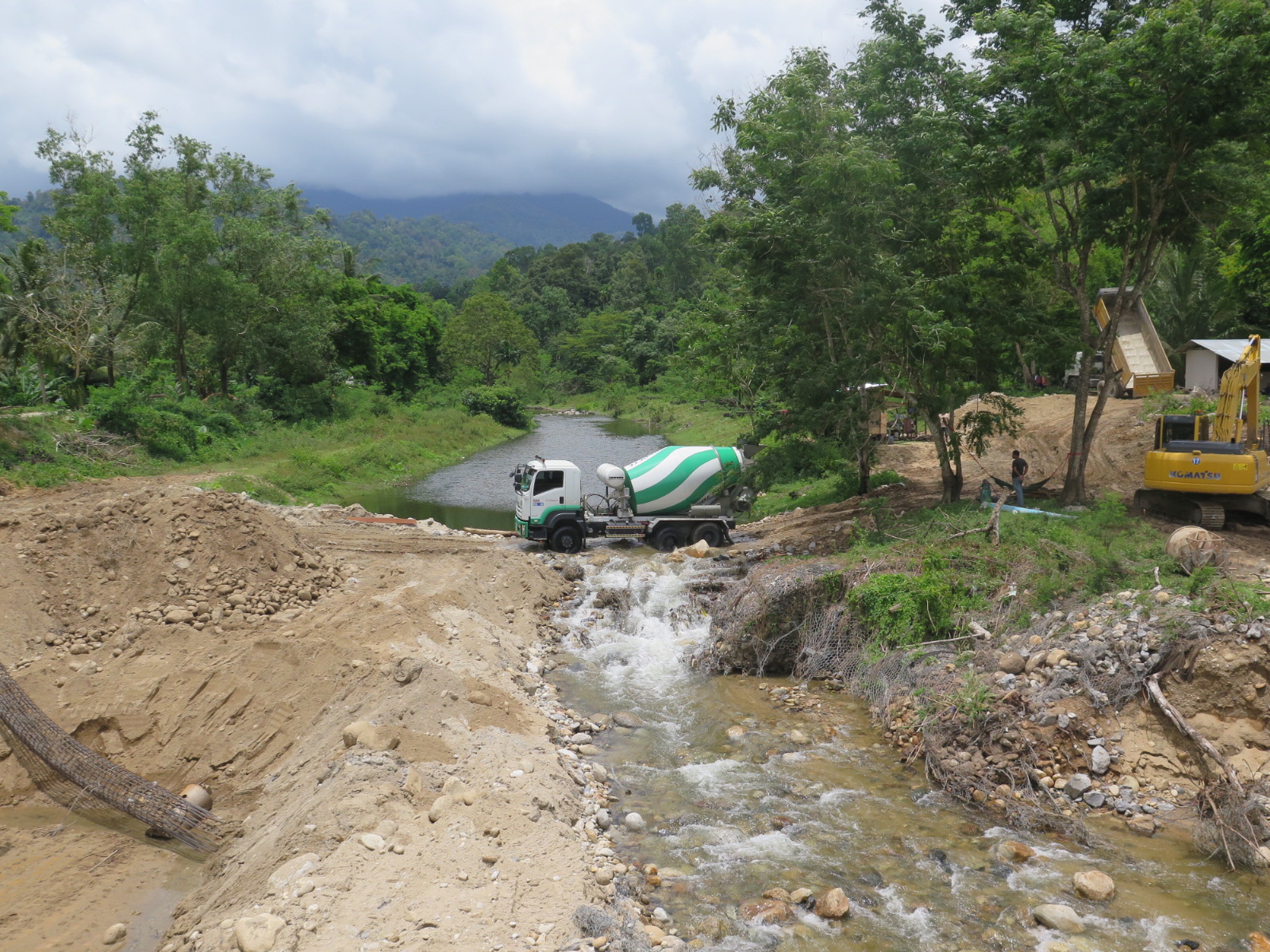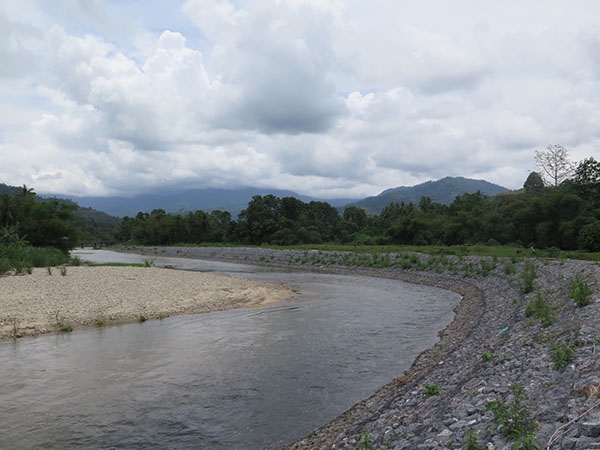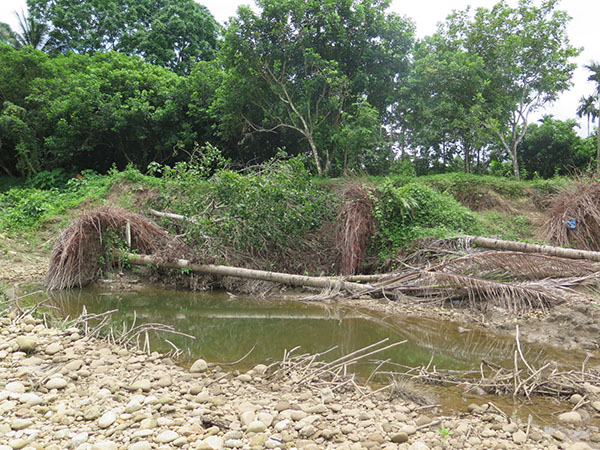What is adaptation? For some people, this question can be hard to understand as they don’t realise that we continuously adapt – or are supposed to adapt – the way we live in some form or another.
To cope with the changing economic, social and natural environments, humans must learn from experience how to adapt. For instance, communities living on the floodplains build their houses on stilts and have boats available for commuting during the rainy season. In this way, floods do not have a negative impact on the lifestyle of the communities but can even offer economic opportunities from fishing. As such, we are familiar with the term “adaptation”.
However, development can make it difficult to adapt. In the Tha Di sub-river basin, Nakhon Si Thammarat, urbanization has occurred rapidly over the last decade with new housing projects, massive shopping malls and new roads constructed. The river has been made narrower and straightened to expand transportation modes, thus reducing water retention areas. In this regard, floods and water shortages, especially in the urbanized areas, can hardly be avoided.
Ecosystem-based Adaptation (EbA) measures have been introduced as a solution to decreasing the flood risks and the negative impacts and increasing water storage. After assessing the vulnerabilities, possible EbA measures like sediment traps and wetlands were proposed to the Department of Water Resources (DWR). DWR initiated a feasibility survey by gathering data and by evaluating the current situation and conditions to implement the proposed EbA measures.
The EbA concept is a new approach for the Thai water sector. To apply the EbA concepts, DWR needs a profound understanding of the EbA principles, of the design of the measures as well as of the (co-)benefits and impacts. However, successful implementation depends also on the acceptance of other stakeholders and the civil society. To achieve this, DWR held meetings prior to a public hearing. Representatives of stakeholders and the civil society participated in these meetings and provided useful information and local wisdom. In this way, DWR achieved mutual agreement on the EbA “Sediment Trap” measures and the development of the wetlands has been successfully introduced to the representatives of the public.
The sediment trap acts as a natural trap to reduce the sediments running into a reservoir, while the wetland conserves the healthy biodiversity and nutrients as well as storing water. Both measures are in line with the late King Rama IX’s philosophy, which helps them to live in a sustainable way.
